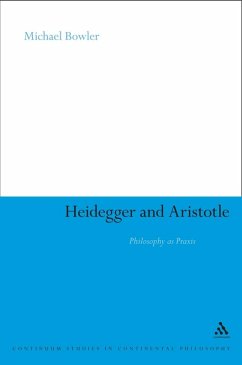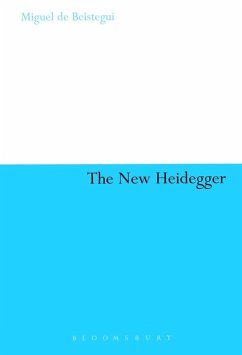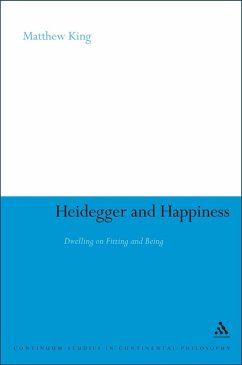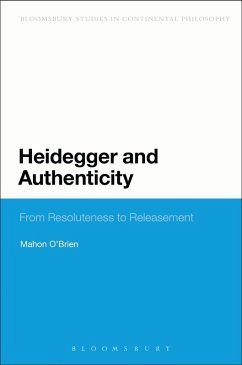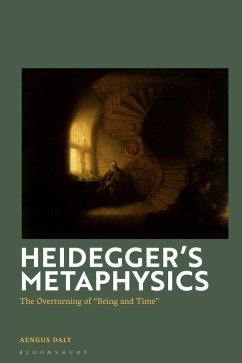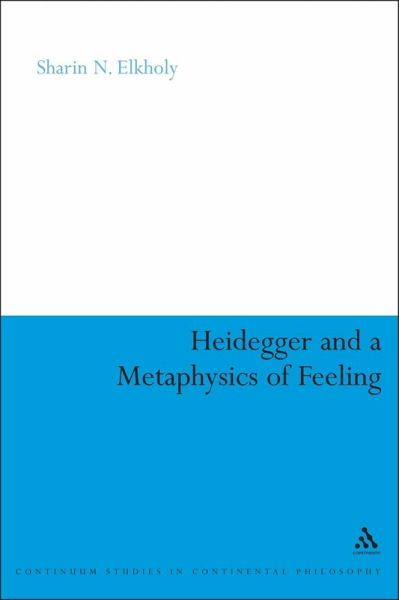
Heidegger and a Metaphysics of Feeling (eBook, PDF)
Angst and the Finitude of Being
Versandkostenfrei!
Sofort per Download lieferbar
31,95 €
inkl. MwSt.
Weitere Ausgaben:

PAYBACK Punkte
16 °P sammeln!
The early Heidegger of Being and Time is generally believed to locate finitude strictly within the individual, based on an understanding that this individual will have to face its death alone and in its singularity. Facing death is characterized by the mood of Angst (anxiety), as death is not an experience one can otherwise access outside of one's own demise. In the later Heidegger, the finitude of the individual is rooted in the finitude of the world it lives in and within which it actualizes its possibilities, or Being. Against the standard reading that the early Heidegger places the emphasi...
The early Heidegger of Being and Time is generally believed to locate finitude strictly within the individual, based on an understanding that this individual will have to face its death alone and in its singularity. Facing death is characterized by the mood of Angst (anxiety), as death is not an experience one can otherwise access outside of one's own demise. In the later Heidegger, the finitude of the individual is rooted in the finitude of the world it lives in and within which it actualizes its possibilities, or Being. Against the standard reading that the early Heidegger places the emphasis on individual finitude, this important new book shows how the later model of the finitude of Being is developed in Being and Time. Elkholy questions the role of Angst in Heidegger's discussion of death and it is at the point of transition from the nothing back to the world of projects that the author locates finitude and shows that Heidegger's later thinking of the finitude of Being is rooted in Being and Time.





